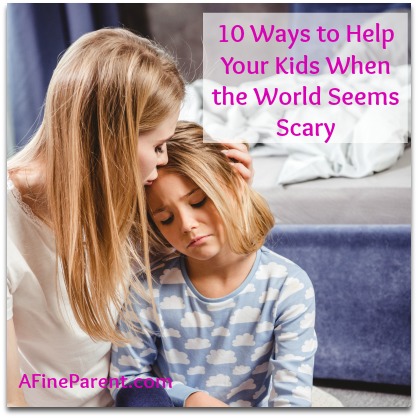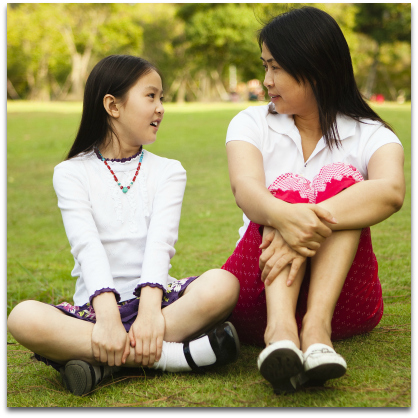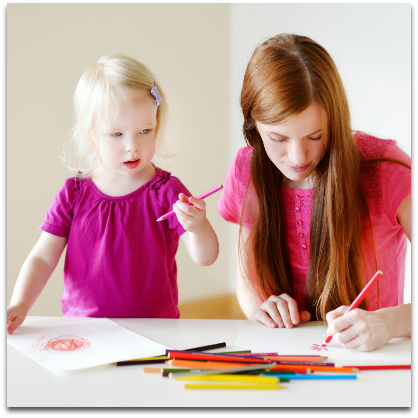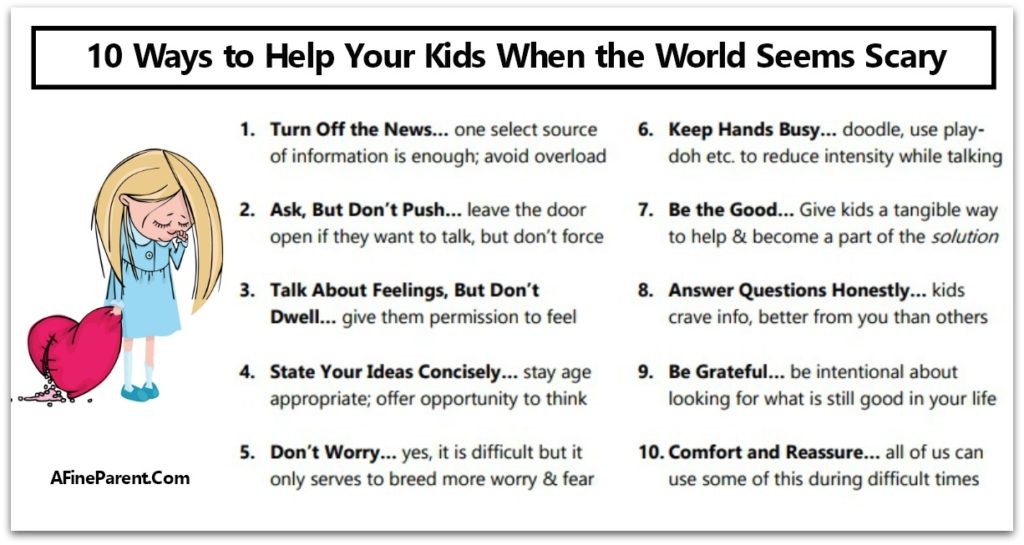 It was a normal evening, full of dinner making and homework and activity. My youngest sat at the table doing a math worksheet, my oldest was practicing her flute, and my son was shooting hoops. I stood at the stove, chopping an onion for the sauce. Normal.
It was a normal evening, full of dinner making and homework and activity. My youngest sat at the table doing a math worksheet, my oldest was practicing her flute, and my son was shooting hoops. I stood at the stove, chopping an onion for the sauce. Normal.
“Mom, what’s Sandy Hook?” my youngest asked.
I stopped chopping, grateful my back was to her and also that I had been chopping an onion. Even after all these years the name of that small town in my small state brings tears to my eyes.
I inhaled, and exhaled, perhaps taking a moment too long to answer. She was probably wondering if I heard her. How could I explain this to my little girl? How could I tell her that I still remember exactly where I was sitting and where she was playing as I watched the tragedy unfold on the news? Kids, just like my own, at school, murdered.
I turned to face her, my girl blissfully unaware of the deep heartache those two words held. Sandy Hook was no longer just a small town an hour away; it was forever ingrained as a tragedy. And now my little girl wanted to know about it. Talking to my daughter about handling tragedy was not what I imagined was on our agenda for the evening.
“Where did you hear about Sandy Hook?” I asked sitting next to her.
“Someone said it at school.”
I had braced myself for questions about the recent shootings in the news, but somehow bringing up Sandy Hook caught me off guard. It felt different. Not because it was any more or less tragic, but because it was so close to home, so different from anything I’d ever experienced. When something happens often enough your reaction changes.
I’ve always believed in telling my kids age appropriate truth. But the truth was I didn’t want my girl to know this. I didn’t want her to have this understanding that terrible things happen to children and sometimes we can’t understand. I wanted to protect her.
But ignorance is not protection. So I forged ahead.
I gently told her about a very sick person who made some very bad choices and murdered people in a school. Yes, many of them were kids. No, it doesn’t make sense.
I explained that safety is very important and we talked about all the ways her school keeps her safe, partially because of lessons learned on that tragic day.
I didn’t rush. Homework and dinner could wait. I gave her a chance to ask questions and let her keep doodling as we talked. I even grabbed a pencil and doodled a little myself. Sometimes hard things are easier to talk about when we can do something with our hands and don’t have to make eye contact.
The whole thing took five minutes. And then she moved on. It took me a little longer as I went back to my onion.
Another day passes and another tragic story is on the news. Today it’s Parkland. Not long ago there was the shooting in Las Vegas and before that a small town in Texas. And, sadly, the list goes on. Shootings, attacks, brutality is all part of the landscape. We are aware of it, and so are our children.
Providing kids the means for handling tragedies can feel hard, but it is very important that we do this. Here are 10 practical tips to help your kids when the world seems scary.
1. Turn Off the News
Watching the news cycle repeat over and over doesn’t help anyone. The images, repeated stories, personal accounts, and police reports are hard for kids to make sense of. The news is hard for kids.
You can get all the news you need in one well reported or well-written story. Then turn it off. Don’t have it running in the background. Also, be aware of switching the radio station as needed. Kids need news from you, not broadcasters.
2. Ask, But Don’t Push
 Ask your child if he’s heard about the most recent tragedy. Find out what they already know. Open the door and leave it open, but don’t force him to walk through it. Sometimes recognizing that it can be talked about is enough for one day. Let him talk when he’s ready.
Ask your child if he’s heard about the most recent tragedy. Find out what they already know. Open the door and leave it open, but don’t force him to walk through it. Sometimes recognizing that it can be talked about is enough for one day. Let him talk when he’s ready.
3. Talk About Your Feelings, But Don’t Dwell on Them
Kids should see that their parents feel things because it gives them permission to feel, too. Especially since they don’t understand all of the feelings inside themselves.
Express your feelings gently without dwelling on them. Admit what you don’t understand. Model healthy ways to express your feelings.
4. State Your Ideas Concisely
It’s good for kids to hear their parents’ ideas about hard subjects. For better or worse, they help kids develop their own ideas. Having excessive, lengthy rants about gun control or military action is not helpful for kids. These are scary
subjects for kids. You can express your idea simply and ask kids what they think if it seems appropriate.
For example, with a tween or teen you could say, “I think this is why I have a hard time understanding why people need guns. Maybe I don’t know everything about it, but I don’t think the average person needs an automatic weapon. What do you think?”
With a younger child something simpler like, “Who do you think should have guns? I’m glad that the police learn how to use their weapons safely to keep us safe,” is a better choice.
Make sure what you say is age appropriate and offers an opportunity for your child to think and express ideas, even if they are different from your own.
5. Don’t Worry
I know that sounds impossible; worry is an automatic response for parents. But worrying all the time in every situation will only breed worry and fear in your child. As parents we need to think about safety, but also decide what is appropriate to share with our children and when.
An example with young kids maybe just to get them thinking: “Hey, I noticed that there is an emergency exit over there. Do you see any more? It’s always good to know where they are.”
With older kids it may be something different: “I see a police officer over there. If I got pulled over what do you think I should do? I always try to keep my hands on top of the steering wheel where the officer can see them so there is no confusion about what I’m doing.”
These are hard conversations, and should not be the only thing we talk about. But weaving thoughts like this into our everyday lives will help our children think proactively about being safe without making them be afraid of every possible situation.
6. Use Your Hands
 Sometimes it’s hard for kids, and even adults, to express their feelings when something scary happens in the world. Providing opportunities to work out some of their feelings by keeping our hands busy helps the intensity fade a little.
Sometimes it’s hard for kids, and even adults, to express their feelings when something scary happens in the world. Providing opportunities to work out some of their feelings by keeping our hands busy helps the intensity fade a little.
Working in the yard, going for a run, coloring or even using play-doh gives us the opportunity to express feelings without the pressure to say everything.
7. Be the Good
Give kids a tangible way to help. If you are religious, go beyond the idea of praying for people and actually pray together. Make cards or cookies for first-responders.
The tragedy may not have happened in your area, but encouraging the police, fire, and EMS workers that keep us safe helps them and you. Give them something to do that makes them feel like part of the solution.
8. Answer Questions Honestly
Kids crave information, and they often feel like they don’t get the whole story. It’s okay and healthy to give them information in an age-appropriate manner. If they know they can trust you for the truth, they are more likely to come to you with their questions.
9. Be Grateful
The bad things that happen have a way of bombarding us. The news and public conversation all focus on the terrifying things that happen. Make sure you purpose time to look for good. It doesn’t need to be fake or cliché. Being grateful increases empathy, reduces aggression, and helps with stress. Make time to practice gratitude.
10. Comfort and Reassure
All of us can use some of this, especially the little ones in our lives. Make time for hugs and snuggles. Be there and be close. Your presence will help them remember that they are safe. It just may help you get through it too.
Free Printable & Shareable Summary
For printing, right click on the image and choose “Open image in a new tab” or “Save image”. For sharing, just share the article link and it should automatically pick up this image.
2-Minute Action Plan for Fine Parents
Think about a recent tragedy that occurred in the news. Did your kids ask about it? How did they handle it? How did you handle it? What kinds of questions did they ask? If they didn’t talk to you about it, think about what kind of conversation you might have had with them. What do you think you would have said?
Which item above feels the easiest for you to implement? Think about how you can do that next time something scary happens.
What scary events do you remember from your childhood? How did you feel? What would have made them less scary?
Long-Term Action Plan for Fine Parents
Develop a plan for how you will react the next time there is a tragedy. Think about how to speak to your kids in age-appropriate ways and how to reassure them while giving accurate information.
Talk to your kids about something recent in the news that is difficult to discuss. It may not be a tragedy, but consider this preparation for when something harder comes along. Maybe it is something like a small fire or a robbery. Be purposeful in what you choose to talk about and try some of the strategies listed above.
Remember, you are the safety your child craves in a world that can feel scary. Show them that you are willing to talk about the hard things and it will help you both.

This sounds like such an important article right now! With all the scary news, from wildfires to school shootings, having 10 practical tips for helping kids handle tragedy is incredibly valuable. I’m really looking forward to seeing these specific ways to support our children.
These are great things to dwell on instead of getting swept up in the political drama. Thanks for great advice!
Dear Rebecca,
A very relevant article , thanks. We had a fake threat the day after Florida and our school called saying they were making sure everything was ok. But the fear is always there, and I felt compelled to go over the lock-down drill with my kids before they left for school that day. It felt foolish and a little shameful telling my kindergartener that if a real bad guy came in, they may not announce “lock-down” and that he should alert everyone and run and hide if he heard gun shot like noises. What else can a parent do?
Dear Rebecca,
A very relevant article – we had a fake threat the day after Florida and our school called saying they were making sure everything was ok. But the fear is always there, and I felt compelled to go over the lock-down drill with my kids before they left for school that day. It felt foolish and a little shameful telling my kindergartener that if a real bad guy came in, they may not announce “lock-down” and that he should alert everyone and run and hide if he heard gun shot like noises. What else can a parent do?
It breaks my heart that you have to talk to a child about emergency exits and ‘keeping your hands on top of the wheel’ in full sight in the presence of a policeman. I understand why but to me it is the death knell of an innocent childhood 😢
It is incredibly sad Deirdre. These do not seem like things our kids should have to be aware of. I am finding, however, that the more we talk about them in non-urgent situations, the more they become just one more safety tip like always looking both ways when we cross the street. Presenting these tips as things to stay safe rather than reactions to horrible events develops an atmosphere of safety and learning.
A really nice piece. Thanks! I’m sharing it with my parent community.
Thanks, Tosha. How I wish we lived in a world where we wouldn’t have a need for these kinds of articles…
Thank you for sharing. Grateful we can work together to help our kids!